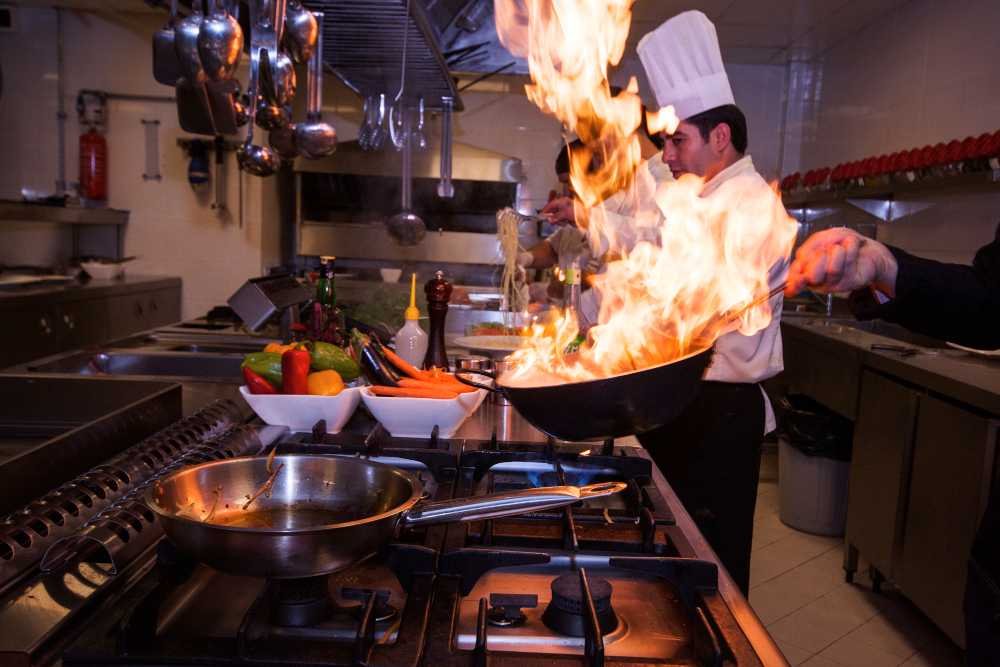Key Skills For A Successful Career In The Hotel Industry
Getting involved in the hectic hotel business offers both chances and difficulties. This industry requires a special set of competencies, including personnel management, logistical organization, and a dash of showmanship. Whether you're a seasoned hotelier looking to refresh your knowledge or you're just embarking on your career in this field, understanding the fundamental skills required can be the cornerstone of your success. This blog post aims to enlighten you about the important skills that can propel your career in the hotel industry to the next level. Check which skill you need to build or polish accordingly.
Understanding the Hotel Industry
Before diving into the required skills, it's important to understand the landscape of the hotel industry. It's a dynamic sector, heavily influenced by changing customer needs, evolving technology, and global trends. Knowledge of these facets can shape your career trajectory and contribute to your professional growth.
Interpersonal Skills in the Hotel Industry
Interpersonal skills, often called 'people skills,' are at the heart of the hotel industry. Effective communication, empathy, and the ability to build relationships with guests, staff, and stakeholders are vital in providing superior customer service, resolving conflicts, and creating a welcoming environment.
Problem-Solving and Decision-Making Skills
Problems can arise without notice in the hotel industry - an unsatisfied customer, a double-booked room, or a maintenance issue. The ability to think quickly, make sound decisions, and find effective solutions is crucial to maintaining smooth operations and high levels of guest satisfaction.
Organizational Skills
Hotels are complex entities that require meticulous organization. Effective time management, the ability to multitask, and coordination are essential to ensure that rooms are ready, events are well-planned, and operations run seamlessly.
Cultural Awareness and Communication
Hotels are global businesses, hosting guests from around the world. As such, cultural awareness, sensitivity, and effective cross-cultural communication skills are necessary to cater to diverse guest needs, avoid misunderstandings, and ensure everyone feels welcome.
Adaptability and Flexibility
The hotel industry is unpredictable and ever-changing, so adaptability and flexibility are key. These skills allow you to handle unexpected situations, adjust to different roles when needed, and embrace new industry trends and technologies.
Attention to Detail
The smallest details can make or break a guest's experience. Whether it's ensuring a room is impeccably clean, remembering a guest's name, or accommodating special requests, attention to detail can set your hotel apart from the competition.
Technology Savviness
Technology plays a crucial role in modern hotel management. From reservation systems to guest communication platforms, being tech-savvy can streamline operations, enhance the guest experience, and drive your hotel's efficiency.
Business and Financial Acumen
Understanding the financial side of running a hotel is critical. Business acumen, financial management skills, and the ability to analyze data can help increase profits, make informed decisions, and guide your hotel's strategic direction.
Sales and Marketing Skills
Hotels aren't just about hospitality—they're also about business. Sales and marketing skills are crucial in promoting your hotel, attracting new guests, and maintaining relationships with existing customers.
Leadership and Teamwork
Running a hotel requires a team effort. Strong leadership skills are needed to inspire and manage your team, while teamwork skills are essential for fostering a collaborative and harmonious work environment
Understanding of Hospitality Laws and Ethics
Knowledge of laws and ethics related to the hotel industry is vital. This understanding ensures that your hotel operates within legal boundaries and upholds a high ethical standard.
Environmental Sustainability in the Hotel Industry
Increasingly, hotels are focusing on sustainability. Understanding eco-friendly practices and implementing them can enhance your hotel's reputation and contribute to global environmental conservation efforts.
Stress Management and Resilience
The hotel industry can be demanding. Therefore, stress management and resilience are key to maintaining your well-being, keeping a positive attitude, and persevering in the face of challenges.
Conclusion
The hotel industry is ever-changing, and a hotelier should have a versatile, forward-thinking, and learning approach. Each skill has a special impact on a hotel's business and the experiences that customers will remember. To provide a home away from home is what the hotel industry strives to provide, not merely a place to sleep.
It's important to remember that the most prosperous hoteliers are those that combine these abilities with a sincere love of hospitality, resulting in a warm atmosphere that makes a lasting impact on visitors. So, if you are looking to create a career in the hotel industry, it is important to get the right learning environment. JIHM has the right environment and infrastructure for young professionals looking to build a successful career in the hotel industry. Check out the JIHM's website to get curriculum details and other admission-related information.















